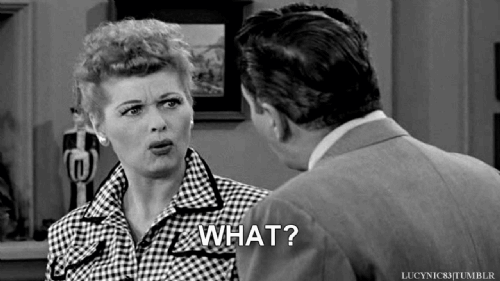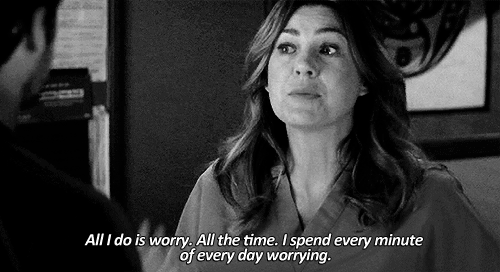How Women Can Kick SERIOUS Butt When Male Privilege Tries To Keep Us DOWN
We're not totally helpless.
 weheartit
weheartit Women were accorded the right to vote 50 years after it was granted to African-American men. Women of color were awarded the right to vote even later. Women were included in the Civil Rights Act as a joke.
Does this suggest that our rights are, somehow, a joke?
The highest office in the land goes the way of the corner office. Does this mean we won’t have a female President for another 50 years? 
Why is this happening?
The answers are not nearly as simple as men keeping us "in our place," although male privilege does keep the scales weighted in their favor.
What do they have, that we need, to even that power imbalance?
One thing is self-confidence.
High self-regard is an important asset, and men seem to have "bragging rights" pretty much sewed up.
A man who brags well is likely to be awarded the higher position than the one who demurs. A man who is not particularly competent can rise in the ranks simply by expressing confidence, even over-confidence.
"The fact is, overconfidence can get you far in life," says Cameron Anderson, a psychologist who has made a career of studying degrees of confidence.
Positive self-representation is a powerful tool.
Except for women.
When women try to borrow behavior from a successful man’s playbook, we’re told not to interrupt, to be "ladylike" and "polite" and not to be "bossy".
So far, all this inequality seems to rest on the men’s shoulders, doesn’t it?
Yes and no.
As a group, women are more likely to focus on competence than on confidence.
In school, we learned that the way to succeed was to perform well, earn As, and to be able to answer all the teacher’s questions.
We believe we’ll "win" by performing well, or by being "qualified" for the job. However ….
When we focus on being competent, we also automatically focus on what we haven’t yet mastered.
We’re never perfect and we know it. We are chronically self-critical. We tend to blame ourselves, rather than circumstance, when something goes awry.
A woman can be every bit as qualified as a man, but she doesn’t REALLY believe it.
Even when we’re doing well, even when we’ve reached the power position, there’s a nagging sense that we’re fraudulent, and we’re going to be "found out."
This is common enough in women in leadership that it even has a name: "Impostor Syndrome."
It’s difficult to compete when part of you thinks you don’t deserve the position or the credit. It’s like trying to fight with one hand tied behind your back. Maybe not your dominant hand, but … You’re always a little off balance.
These female traits are over-determined — that is, there are many puzzle pieces in the picture. Beginning at birth, even the most progressive of mothers is likely to unconsciously identify with her girl baby, then unconsciously treat her as she, herself, was treated in her early years. Interestingly, in animal studies, the way a baby is treated actually changes its DNA.
We often call this a "mothering instinct," although I’m not convinced it’s inborn. I’m pretty sure I treated my son and my daughter differently, despite the fact that they played with the same toys, and learned from the same books.
I dressed my daughter in jeans and t-shirts, but I didn’t dress my son in a skirt.
Not once. I wonder what that meant to them?
As we girls grow, we’re encouraged to focus on "getting along" and being "nice" rather than being competitive.
Most of us — many of us? — back out of competitive games.
Are we afraid of getting hurt? Of hurting someone else? Of getting dirty? Of losing?
I know that my own mother had dreams of a music career for me, and was VERY afraid I’d hurt my hands. So I wasn’t about to try to catch a fastball!
Then there are the hormones. While testosterone contributes to aggressive behavior, estrogen makes us softer and more relationship-oriented. In high school, I had a massive crush on a boy who was also my rival in music competitions. He always won.
Looking back, I know that the adult judges thought that he was more likely to go on and build a career, and I was more likely to get married and have babies — so he should get the glory. BUT there was another piece, as well. I could perform with him — we played a lot of chamber music together — but I was terribly ambivalent when it came to besting him.
I really wanted to win, but I also wanted to preserve our relationship. I had the idea that he really wouldn’t like me if I won. My hands would shake.
So I knew I hadn’t delivered my best. And yet, I don’t think he worried about beating me!
Those of us who know that we are as qualified as our male counterparts have an uphill battle.
And we’re struggling with ourselves, as well. I’m learning not to let loose a self-deprecating laugh after I’ve said something important, or controversial — as if to say, "don’t mind little ol’ me, I don’t know what I’m talking about."
When I’m praised for pulling my organization out of the red and into the black, I hear myself saying, "I didn’t do that much — I was just in the right place at the right time."
It’s really, really hard to own that kind of praise. It’s not pretty to brag. And I might not be lovable if I’m confident, big and powerful.
So it’s simple, right? We should just change these feelings.
HAH! If that could be done easily, this piece would be unnecessary.
Sadly, the more one fights a feeling, the stronger that feeling gets. The more I try to talk myself out of shyness, the harder it is to speak up.
Fighting those insecure feelings keeps us stuck.
If I want to make a change, the first step is becoming aware and accepting that the "dangerous" emotion is my own.
It took me years to understand what that self-deprecating laughter was about. Now that I know, I can stay with my message and let myself sit with the discomfort of pushing the envelope.
My goal?
To learn to be kind enough to my whole, imperfect self, so that I will feel OK if the entire world doesn’t love me.
And to speak my piece, even if my voice quavers.
Cheryl Gerson, LCSW, BCD, is a couples counselor and psychotherapist in New York City. She has been in practice for over 25 years, and would love to share some of what she's learned with you. Call for a free 20-minute telephone consultation.

